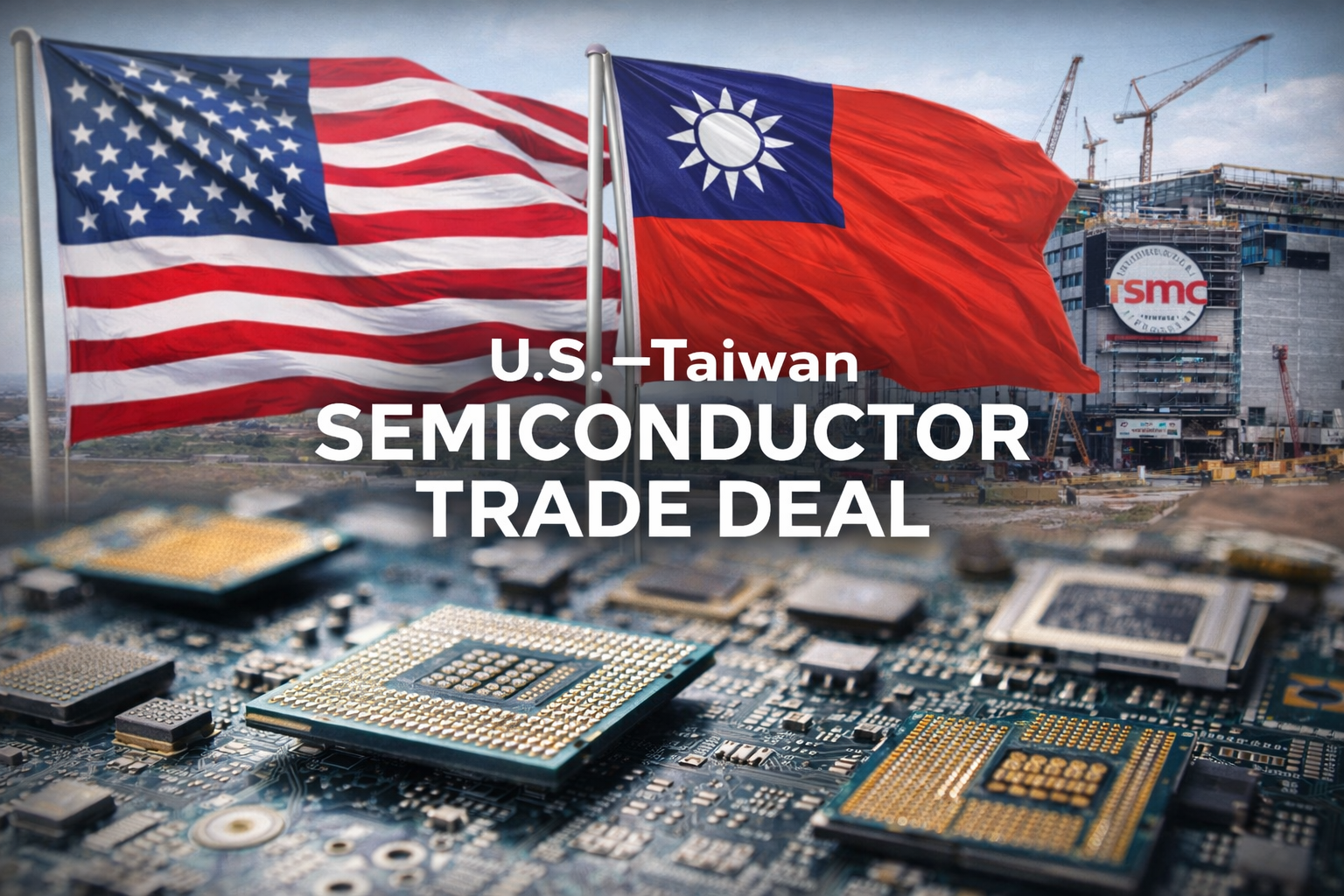Key Highlights
- Former President Donald Trump imposed a 25% tariff on imported cars and car parts.
- The tariffs aim to bolster US manufacturing but risk job losses and price hikes.
- International carmakers face repercussions; retaliatory tariffs are anticipated.
- The tariffs threaten US credibility in global trade and could hinder future alliances.
- Experts suggest the tariffs could instigate a trade war and harm the global economy.
Introduction
Former President Donald Trump made a surprising announcement in the Oval Office. He announced a 25% tariff on all cars and car parts that come into the United States. This decision was made to help revive the American car industry and stimulate the market for auto loans. It was also meant to lessen the country’s dependence on foreign automakers. However, many people started discussing the potential effects. They worried about how the new Trump Tariffs could impact the US economy, relationships with other countries, and global trade, as chief executives in the industry voiced their concerns.
The Impact of New Trump Tariffs on the Automotive Sector
 The car industry got ready for big changes after Trump’s tariffs were put in place. Foreign car makers, who sent cars to the US market, felt the effects right away. They had to choose between taking in the higher costs or making consumers pay more. Many people in the industry criticized the tariffs. They believed these tariffs would reduce competition and end up hurting American buyers.
The car industry got ready for big changes after Trump’s tariffs were put in place. Foreign car makers, who sent cars to the US market, felt the effects right away. They had to choose between taking in the higher costs or making consumers pay more. Many people in the industry criticized the tariffs. They believed these tariffs would reduce competition and end up hurting American buyers.
How the tariffs specifically target foreign cars and auto parts
The auto tariffs set by the Trump administration aimed at car imports and auto parts coming from outside the United States. This plan was meant to help boost domestic manufacturing, as Peter Navarro suggested. Still, it raised worries about higher prices for American consumers and possible retaliatory actions from other countries.
Critics say these policies come from a view that does not trust unregulated markets. They believe this view often ignores the important connections in global supply chains. This approach might simplify a complex problem and could lead to unexpected issues, like job losses in areas that depend on imported parts.
This viewpoint often connects with fears around far-right populism, which usually supports protectionist policies to push national interests. However, those who oppose this view argue we must think about the long-term effects on global trade and how modern manufacturing processes are connected.
Potential repercussions for international automotive manufacturers
The new tariffs on car imports from big car-making countries, including those in the European Union and North America, quickly affected international car makers, particularly German carmakers, including Jaguar Land Rover, according to the Society of Motor Manufacturers. Automakers now deal with a tougher trading situation, with the risk of retaliatory tariffs from the European Commission hanging over them.
This made it clear how delicate global trade ties can be, especially when facing policies that promote protectionism. The chance of a trade war, which involves rising tariffs and countermoves, is a real worry for the global economy. This is especially troubling for firms like General Motors. They rely on a complicated network of global supply chains and need international markets for much of their income.
These tariffs showed how connected the global economy is. A single country’s policy choices can have effects that spread all over the world. This has raised fears about a rise in economic nationalism as countries begin to put their own interests first, rather than working together and supporting free trade.
Economic Consequences of Permanent Tariffs on Vehicle Imports
The choice to put ongoing tariffs on electric vehicles and other vehicle imports has had a big impact on the economy. It has also caused a lot of uncertainty in the global car market. The effects of these tariffs reach beyond just cars, affecting many areas of the US economy. Both businesses and consumers are dealing with the results of these trade rules.
Predicting the shift in production and job landscape in the US
One of the primary arguments for imposing tariffs was to encourage domestic manufacturing and create jobs in the US. However, the tariffs’ actual impact on the production landscape and job market is complex and multifaceted. While some argue that tariffs incentivize companies to relocate production to the US, others caution that this shift could lead to job losses in industries reliant on imports.
| Sector | Projected Job Growth | Projected Job Loss |
|---|---|---|
| Manufacturing | +5% | -2% |
| Automotive Parts | +8% | -3% |
| Retail | -3% | +1% |
The data from sources like the Bureau of Labor Statistics suggests potential job growth in manufacturing, with a simultaneous decline in other sectors like retail. The establishment of new factories by companies like Tesla indicates a potential shift in production towards the US. However, whether these shifts will offset potential job losses in other areas and result in a net positive impact on the US job market remains uncertain.
Analysis of price fluctuations in the consumer market
The tariffs caused higher prices that hit consumers right away. Importing foreign cars and auto parts became more expensive. These costs trickled down to consumers, causing prices to go up for both new vehicles and used vehicles.
Supporters of the tariffs believed more people would want American cars, helping to balance the price increases. However, critics warned that local manufacturers might not have enough ability to quickly meet this new demand in North American vehicle production, which could lead to lower production, a tighter supply, and raise prices even more. The problem is made worse by existing global supply chain issues and the economic recovery from COVID-19.
Because of the cost of tariffs and rising inflation, many consumers are feeling a financial strain, particularly due to the impact of tariffs on car production costs. This is especially hard on people with lower incomes who really need affordable vehicles to get around. Economists still debate how long these price changes will affect consumer spending and the economy as a whole.
Potential Impact on US Diplomacy
The choice to place permanent tariffs on vehicle imports is important for more than just its economic effects. It also affects international relationships. This decision quickly faced backlash from important US allies like Canada and the European Union. This could lead to tensions in their diplomatic connections.
Effect on US credibility and reputation in global affairs
The introduction of tariffs was seen as a protectionist move that caused worries about the US’s credibility and reputation internationally. Critics said this could harm trust in the US as a dependable trading partner and weaken its position in global discussions.
The White House insisted that the tariffs were vital for protecting American jobs and economic interests. However, this did not calm the fears of many abroad. They saw the Trump administration’s trade strategy as aggressive and hard to predict. The tariffs heightened worries about a trade war, which could seriously hurt the global economy and threaten the international trading system that the US had always supported.
This view emphasizes a common criticism of the Trump administration’s foreign policy. Some believe it often favors unilateral actions over working together with other countries. This approach might isolate the US and make it harder to tackle worldwide problems through teamwork and diplomacy.
Considerations for future trade deals and alliances.
Tariffs have affected the US’s ability to make future trade deals and build strong partnerships. The commitment to free trade is now questioned. This puts the US in a tougher international situation where trust is shrinking, and backlash is expected.
The USMCA trade pact, signed during Trump’s term, wanted to improve trade among the US, Canada, and Mexico. However, the new tariffs even after this agreement show how unstable the trade environment is and create doubts about whether such deals can work long-term.
This situation is part of a larger rise in protectionism and economic nationalism. Many countries are focusing on their own needs and using tariffs and other trade barriers. As a result, the future of global trade and the systems that support it are uncertain.
The alienation of the US’ closest allies
One major effect of the Trump administration’s tariff policy was the tension it created with the US’s closest allies. The choice to put tariffs on steel and aluminum imports from the European Union, Canada, and Mexico was especially shocking and led to strong reactions.
The European Union, a longtime trading partner of the US, responded by imposing tariffs on various American goods, which escalated the trade war. Former Canadian Prime Minister Justin Trudeau strongly criticized the tariffs, calling them “insulting” and harmful to Canada’s economy, a sentiment that has been repeated by Canadian Prime Minister Mark Carney, who described the tariffs as a direct attack on Canada. European Commission President Ursula von der Leyen stated that these tariffs have led to distrust and bad feelings, making it harder for the US to work with allies on global issues.
These actions have raised worries about the US’s ability to keep its leadership role in the world. As countries like China try to grow their influence, it becomes more important for the US to build and maintain strong alliances to push its interests and values worldwide.
Conclusion
In conclusion, the new Trump tariffs have raised worries in the car industry. This could affect both foreign companies and the US economy. A change in production and job availability, along with rising prices, might create economic risks. Additionally, these tariffs could harm US relations by affecting trust and partnerships worldwide. According to Jonathan Smoke, it is important to think about how such policies can change trade ties and future alliances. We need to find a way to protect our economic interests while keeping good diplomatic relationships. It is essential to look at how these tariffs affect the bigger picture.
Frequently Asked Questions
What exactly does ‘permanent tariffs’ mean in this context?
‘Permanent tariffs’ mean that the import taxes are not set to end anytime soon. They are different from temporary tariffs, which have a set finish date. These permanent tariffs on imported cars and parts show a long-term change in US tariff policy, which is tied to national security concerns. Until they are removed, they act like a tax hike.
Could these tariffs lead to a trade war with Canada and the EU?
The tariffs have increased tensions in trade. Canada and the European Union, which already face US steel and aluminum tariffs, have responded by placing retaliatory tariffs on US products. This has raised worries about a trade war. The rising trend of reciprocal tariffs and counter-tariffs affects all the economies involved.




